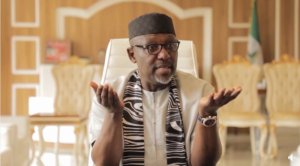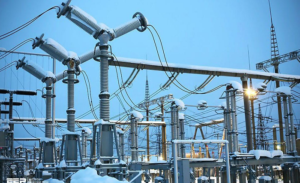
The federal government has decided to waive customs duty and value-added tax (VAT) for the importation of liquefied petroleum gas (LPG) and its associated equipment. This strategic move is anticipated to lead to a reduction in the price of cooking gas across the country.
The Ministry of Finance communicated this decision through a letter dated November 28, 2023, addressed to the Special Adviser to the President on Energy, the Comptroller-General of the Nigeria Customs Service (NCS), and the Chairman of the Federal Inland Revenue Service (FIRS).
The letter was signed by Wale Edun, the minister of finance and coordinating minister of the economy.
According to the ministry, the exemption aligns with President Bola Tinubu’s commitment to enhance Nigeria’s investment climate, and promote clean cooking practices.
“In line with His Excellency, President Bola Tinubu’s commitment to improving the investment climate in Nigeria, increasing the supply of LPG to meet local demand, reducing market prices and promoting clean cooking practices, I hereby affirm Presidential directive dated July 29, 2022, with reference number PRES/88/MPR/99,” the letter reads.
“Accordingly, the importation of LPG utilizing HS Codes 2711.12.00.00, 2711.13.00.00 and 2711.19.00.00 is exempt from Import Duty and Value-Added Tax. Consequently, the Importation of LPG shall incur a 0% duty rate and 0% VAT rate, effective immediately.”
The ministry instructed the NCS and FIRS to comply with the directive pending its official gazetting.
Also, the ministry directed the NCS to comply with the presidential directive, dated July 29, 2022, and withdraw all debit notes issued to petroleum marketers who have imported LPG “using codes 2711.1.2.00.00 and 2711.13.00.00 from August 26, 2019, to the present date”.
Other items exempted from VAT and duty payment are LPG cylinders, LPG cascades, gas leak detectors, steel pipes, steel valves and fittings, LPG dispensers, gas generators, and LPG trucks.
Olu Verheijen, the special adviser to the president on energy, said the decision was prompted after consultations with stakeholders revealed that the lack of a clear fiscal directive has hindered investments in the LPG sector.
She spoke while informing the chairman of the Nigerian Alliance for Clean Cooking of the exemptions in a separate letter, dated November 30, 2023.
Verheijen said the paucity of investment led to a rise in the prices of cooking gas and an uptick in the use of “unhealthy fuels such as kerosene”.
In 2019, the FG had removed VAT on LPG in Nigeria.
However, reintroducing the tax in 2021, the FG commenced implementing the 7.5 percent tax on imported LPG — exempting locally manufactured gas.






Be First to Comment